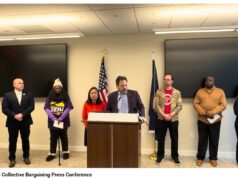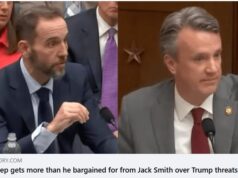by Cindy
Virginia WILL someday drag herself up from the bottom of the list of places to work—but she sure isn’t moving up without a fight. During last year’s off-off year elections, when recruiting volunteers to knock doors and make calls in dozens of competitive legislative races around the Commonwealth was challenging, the labor unions were the ones who always showed up at every event, knowing how high the stakes were for workers. It’s not an exaggeration to say that we would not have taken the majority in the Senate and House without their efforts.
Naturally, we all thought the new Democratic majority would quickly move to address workers’ rights in a big way. More protections for low-wage workers, fewer restrictions on collective bargaining, more protections against discrimination and for contract and gig workers. Before session even began though, there was signaling from Democratic leadership and the Governor that major reform like repealing the so-called “right to work” law was off the table. And the path to reform has only gotten rougher since then.
During session, the House Appropriations Committee declined to even hear Delegate Lee Carter’s “right to work” repeal bill, after it had passed out of the House Labor and Commerce Committee on a party-line vote. The Senate had no such bill, but killed an even weaker version, Senator Dick Saslaw’s “fair share” bill. The Senate struggled to pass a local option public collective bargaining bill (the House’s mandatory version had no chance), had to water down a prevailing wage bill (restricting it to apply to projects at least $250,000) to pass it, and had to water down a bill allowing project labor agreements on local construction projects. Delegate Jennifer Carroll-Foy’s Paid Family and Medical Leave was left to die in the House Appropriations Committee. Senator Favola’s paid sick leave bill died on the Senate floor vote in a bizarre last-minute House-Senate fight over other bills, after Delegate Elizabeth Guzman’s House version of the bill had earlier been killed in the House Appropriations Committee. Lastly, the minimum wage bill (Senator Saslaw/Delegate Jeion Ward) was watered down multiple times in the Senate, with various senators wanting exemptions for particular workers, regional variations, and/or variations for employers who offered health benefits to workers; until they finally found some compromise version that passed both the House and Senate.
So, session ended, and what did we end up with? Well, a minimum wage bill that didn’t satisfy everyone, but was a good start. A local option public collective bargaining that might not help public workers in too many localities, but in a place like Fairfax or Arlington might help some. Prevailing wage and project labor agreement bills that would help some construction workers on public projects. (Plus other good bills to protect workers from retaliatory actions by bosses, and bills to fight misclassification of workers and to protect wage information.) All along the way, Republicans objected to every single one of these bills, with industry and Chamber of Commerce lobbyists, complaining that business would be gutted, destroyed, the economy would fall to pieces if we passed any of these. Democrats valiantly rebutted these arguments—and, frankly, there is strong economic evidence to back up the notion that a good economy is built on good jobs and well-paid workers.
And then COVID-19 hit. A massive economic catastrophe unlike anything since the Great Depression. Social distancing rules have caused thousands of businesses to dramatically alter their operations, or to shut down entirely. Over 300,000 Virginians have filed for unemployment in the last three weeks. We have no way of knowing how long it will last, or what the recovery will look like. What did all this mean for the labor bills just passed by the General Assembly?
The answer came at 11:59 on April 11, the deadline for Governor Northam to take action—to sign, veto, or send back recommended amendments—on these labor bills. While he didn’t veto any of them, he did send them back with amendments, pushing back their enactment dates to May 1, 2021. For the minimum wage bill, that was a four-month delay (since its original enactment date was already a later-than-usual January 1, 2021, another compromise); for the other bills, the delay was 10 months. For Democrats who campaigned on the promise of making Virginia a better place to work, for union representatives who worked hard to elect Democrats on that promise, for low-wage workers struggling before COVID-19 and struggling even more now, this feels like an incredible disappointment.
But is there a valid economic reason for delaying these reforms? Would enacting them sooner hurt the economy or prevent or slow a recovery? If so, does that mean the Republicans were right all along about the negative impact on the economy of these reforms? And if not, why is the Governor trying to delay them?
I have a mixed answer (and of course, have no idea what the Governor was actually thinking). First of all, PLAs and prevailing wage bills apply mainly to large public construction projects, which have in fact been almost entirely cancelled for the foreseeable future, due to the emergency spending from the budget, and the now-uncertain tax revenues. So it’s both unclear why the Governor needs to bother delaying enactment, and also not likely that anyone will be worse off for the delay. Similarly, it’s unclear what use there is to delaying enactment of the local option public collective bargaining, since it’s only optional anyway. Delaying these really seems like a statement or concession from Governor Northam to the Chambers of Commerce and business leaders and industry groups that have undoubtedly been lobbying him hard to veto these bills. But with no explanation, this statement really seems to undermine the message Democrats have been fighting to convey all session that being worker-friendly is GOOD for Virginia’s economy.
Delaying enactment of the minimum wage I would argue is more substantive. It’s a potential loss of about $1560 for every worker who earns the current federal minimum wage and who is employed on January 1st 2021 through May 1st at that rate instead of at $9.50. Economic research has typically found that the minimal negative employment effect of small increases to the minimum wage is more than offset by the positive wage effects. So, won’t it help the recovery to increase the minimum wage? Well, maybe or maybe not. Those studies are almost entirely on small changes in the minimum wage, enacted during very ordinary times. There are NO STUDIES on the effect of a $2.25 increase in the minimum wage during an economic crisis when the unemployment rate is 20%. To extrapolate from the studies we have to the economic conditions we face right now is impossible. So, it may be the case that delaying the minimum wage is a safe move to help Virginia recover from this extraordinary situation—or it may be the case that raising it as soon as possible is just what the economy needs. Unfortunately, as much as we’re the party that believes in facts, data and science, this is one time where we have none.



![Sen. Tim Kaine on Appropriations Bills: “we shouldn’t give [Trump’s] deranged decisions the imprimatur of congressional approval by passing this legislation without significant amendment.”](https://bluevirginia.us/wp-content/uploads/2025/03/kaineblasts-238x178.jpg)





![[UPDATED 1/29/26] Audio: Sen. Tim Kaine Talks to Blue Virginia About His “Five-Point Plan” to Fight Trump’s Orban-Like Assault on US Democracy; Civil Disobedience a la MLK Jr.; Trump’s Bogus “Energy Emergency”; the Crucial Importance of the 2025 VA Elections; etc.](https://bluevirginia.us/wp-content/uploads/2025/02/kaineinterview2-100x75.jpg)

